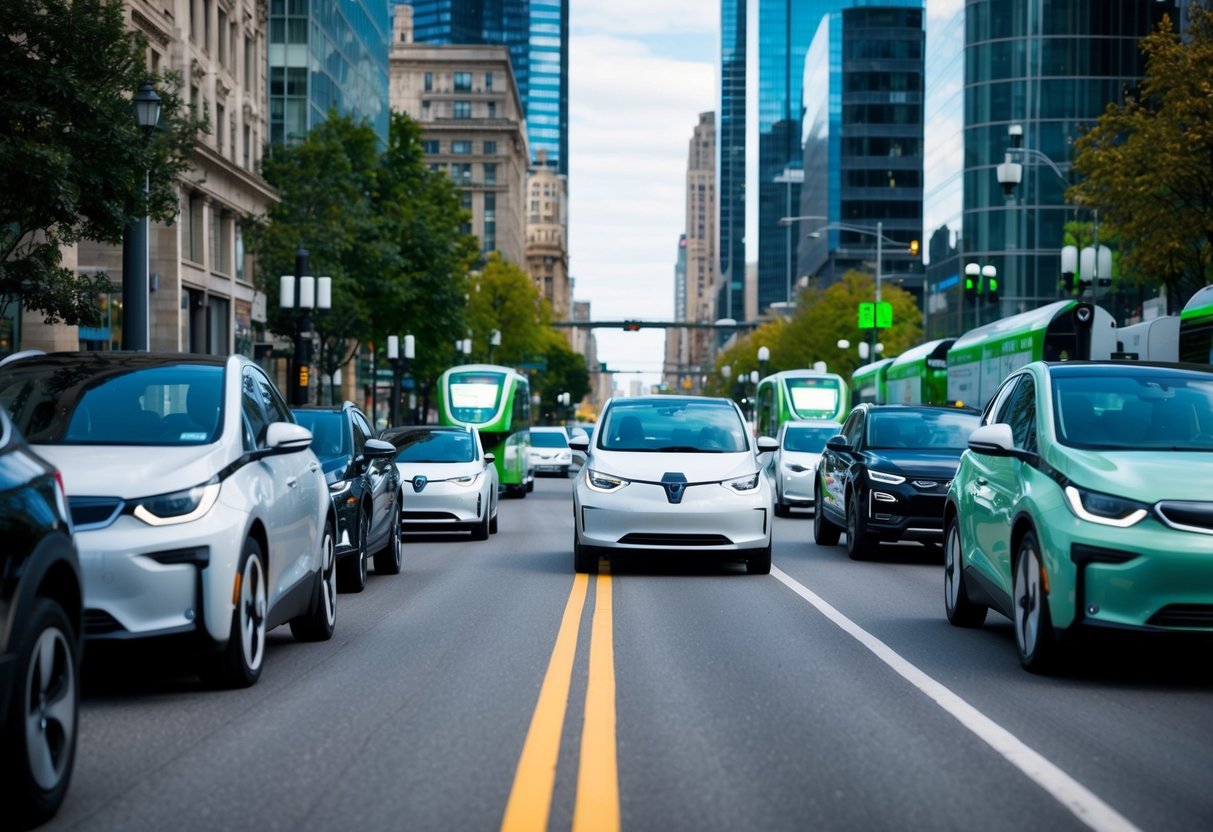Latest Electric Vehicle Innovations: What to Expect in 2024 and Beyond
Innovations in EV Charging Technologies
Technological innovations in EV charging are improving user experience. Ultra-rapid chargers, capable of charging vehicles in a fraction of the time traditional chargers need, are being deployed. These chargers can deliver up to 350 kW, significantly reducing downtime for drivers.
Wireless charging is also being explored as a viable option, eliminating the need for cables and enhancing convenience. Furthermore, smart charging systems are becoming more sophisticated, offering dynamic load management, which optimizes energy distribution. These technologies not only improve the speed and convenience of charging but also contribute to a more efficient and reliable energy grid.
Energy storage solutions, including vehicle-to-grid technology, are also being integrated, allowing vehicles to return power to the grid. This integration promises a more sustainable charging ecosystem, aligning with broader renewable energy goals.
Environmental Impact and Sustainability

Electric vehicles (EVs) promise significant environmental advantages, mainly through reducing carbon emissions and incorporating sustainable practices in their production. The focus tends to be on decreasing the overall carbon footprint and promoting greener supply chains.
Reducing Carbon Footprint Through EVs
The adoption of electric vehicles is reshaping transportation’s environmental landscape. One of the most impactful changes is the reduction of carbon emissions. EVs run on electricity rather than fossil fuels, which cuts down tailpipe emissions significantly. This shift is crucial in combating climate change as transportation currently represents a large share of global greenhouse gas emissions.
In regions where electricity is increasingly generated from renewable sources like wind or solar, the reduction in carbon footprint is even more pronounced. Policymakers and manufacturers are actively investing in these technologies to enhance the sustainability of EVs. As these efforts progress, a noticeable decrease in emissions from the transportation sector is expected, further contributing to global environmental goals.
Sustainable Practices in EV Manufacturing
Sustainability in EV manufacturing is advancing through innovative practices and materials. Companies invest in cleaner production processes, focusing on sourcing raw materials like lithium and cobalt more responsibly to minimize environmental degradation. These changes are essential, as they reduce the ecological footprint associated with vehicle production.
Additionally, recycling and reusing battery components have become pivotal to achieving sustainability. Manufacturers are developing closed-loop systems to reclaim materials, which reduces waste and minimizes the need for new resources. Advancements in this area promise to make the lifecycle of EVs more environmentally friendly, aligning with broader sustainability goals across the industry. These practices are crucial for the industry’s commitment to reducing its overall environmental impact.
Economic Aspects of Electric Vehicles
Electric vehicles (EVs) are transforming the transportation sector, influencing both personal finances and broader economic trends. Key factors include the total cost of ownership, which encompasses purchase prices and long-term savings, as well as the shifting landscape of EV and battery costs. These elements are crucial for evaluating the economic viability of EVs.
Cost of Ownership and Fuel Savings
Electric vehicles promise significant reductions in fuel expenses. While traditional vehicles depend on gasoline, EVs rely on electricity, often costing less per mile. Fuel savings are a central appeal, with electricity generally cheaper and prices more stable than gasoline.
Maintenance is also typically less burdensome for EVs. With fewer moving parts, EVs often experience lower wear and tear. This can translate into savings over time, reducing the frequency and cost of repairs. The initial purchase price can be higher compared to conventional vehicles, but the reduced ongoing expenses can balance this out over the long term.
Insurance and tax incentives further influence the cost of ownership. Some regions offer rebates or tax credits for EV buyers, reducing the financial burden. Insurance costs may vary, yet can be competitive with those for internal combustion engine vehicles, adding another layer of potential savings.



